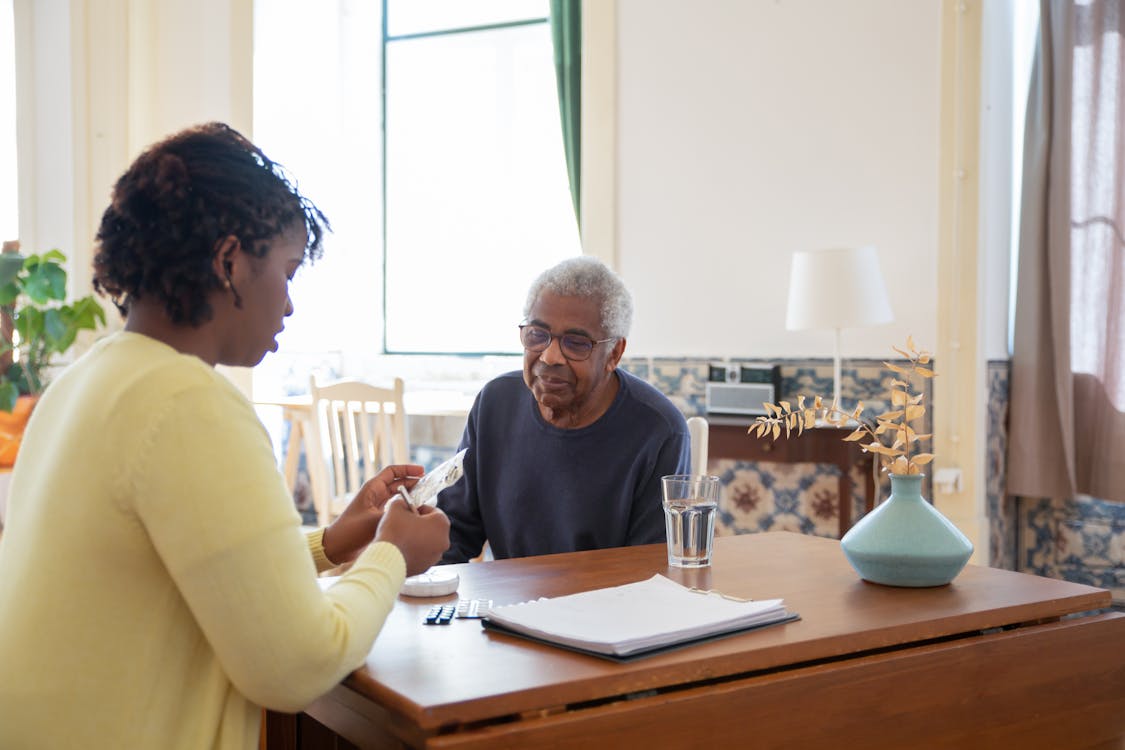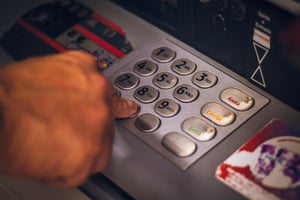As the population ages, the need for caregivers is growing rapidly. Caregivers are individuals who...
CDPAP Caregiver Requirements
DPAP (Consumer Directed Personal Assistance Program) is a Medicaid program that allows individuals who require assistance with activities of daily living to self-direct their own care. This program enables individuals to choose their own caregivers, who can be family members, friends, or other trusted individuals.
Eligibility
To become a caregiver under the Consumer Directed Personal Assistance Program (CDPAP), you need to meet a few requirements.
First of all, you need to be at least 18 years old and legally authorized to work in the United States.
Secondly, you need to be able to perform the tasks required of a caregiver. This means that you don’t necessarily need to be a licensed healthcare professional, but you do need to be physically and mentally capable of providing the necessary care.
It’s important to keep in mind that being a caregiver can be a demanding job, both physically and emotionally, so it’s important to make sure you’re up for the task before applying.

Training
CDPAP caregivers are required to complete a comprehensive training program that covers a wide range of topics to ensure that they are well-equipped to provide the best possible care to their clients.
The training program includes important subjects such as infection control, safety, and communication, which are essential for ensuring that the caregiver can provide a safe and comfortable environment for their clients.
The training is provided by either the CDPAP agency or a certified training provider, and the caregiver must pass a competency exam after completing the program to demonstrate their understanding of the material.
By completing this training, caregivers are able to provide the highest quality care to their clients and ensure that they are able to live their lives with dignity and independence.
Background Check
When you become a caregiver in the Consumer Directed Personal Assistance Program (CDPAP), you will need to undergo a criminal background check. This is a standard procedure that is carried out by either the CDPAP agency or the New York State Department of Health.
The purpose of the background check is to make sure that you have not been involved in any criminal activities that would make you ineligible to provide care.
The background check is an important step in the process of becoming a caregiver. It helps to ensure that the people who receive care through the CDPAP program are safe and protected.
By undergoing a background check, you are demonstrating your commitment to providing high-quality care to those who need it most.
During the background check, your criminal history will be reviewed. This includes any past convictions or charges that you may have had. Having a criminal history does not necessarily disqualify you from becoming a caregiver.
The CDPAP agency or the New York State Department of Health will review your case on an individual basis to determine your eligibility.
Overall, the criminal background check is an important part of the CDPAP caregiver application process. It helps to ensure that the people who receive care through the program are safe and protected, and that caregivers are qualified and trustworthy.
Medical Clearance
CDPAP caregivers are required to undergo a medical examination to ensure that they are physically and mentally fit to provide care. The examination must be conducted by a licensed healthcare professional and should include a tuberculosis test.
This is an important step to ensure that the caregiver is healthy and capable of providing the best possible care to their patients. The medical clearance process is an essential part of the CDPAP program and helps to ensure the safety and well-being of both the caregiver and the patient.
Legal Authorization
If you’re hiring a caregiver who isn’t a family member, there are a few things you need to know.
First, they’ll need to show that they’re legally authorized to work as a caregiver. This means they’ll need to fill out a caregiver agreement with the CDPAP agency and provide documentation that shows they’re legally allowed to work in the United States.
It might sound like a lot of paperwork, but it’s important to make sure everything is in order so you can have peace of mind knowing your loved one is in good hands.
Availability
CDPAP caregivers are required to be available to provide care according to the schedule agreed upon with the individual receiving care. This means that caregivers may need to work on weekends, holidays, and overnight shifts.
It’s important for caregivers to be flexible and understanding of the needs of the person they are caring for. After all, caregiving is not just a job, it’s a way to make a meaningful difference in someone’s life.
By being available and reliable, caregivers can help ensure that the person they are caring for receives the support they need to live a happy and healthy life.
Benefits of Becoming a CDPAP Caregiver
Becoming a caregiver under the Consumer Directed Personal Assistance Program (CDPAP) can be an incredibly rewarding experience. Not only are you able to provide care to those who need it most, but you also have the opportunity to enjoy a number of benefits that come with the job.
One of the biggest benefits of becoming a CDPAP caregiver is the flexibility that comes with the job. As a caregiver, you are able to set your own schedule and work as many or as few hours as you like.
This can be particularly appealing for individuals who are looking for a way to earn income while still being able to spend time with their families or pursue other interests.
Another benefit of becoming a CDPAP caregiver is the ability to provide care to loved ones. Many caregivers choose this career path because they want to help their family members or friends who require assistance with activities of daily living.
By becoming a caregiver under the CDPAP program, you are able to provide high-quality care while also maintaining close relationships with your loved ones.
In addition, caregivers in the CDPAP program often report feeling fulfilled by their work. Providing care can be both emotionally and intellectually challenging, but it can also be incredibly rewarding.
Caregivers have the opportunity to make a meaningful difference in someone’s life and help them maintain their independence and dignity.
Overall, becoming a CDPAP caregiver comes with many benefits. From flexible scheduling to the ability to provide care for loved ones, caregivers have the opportunity to enjoy fulfilling work while making a positive impact on others’ lives.
Responsibilities of a CDPAP Caregiver
As a caregiver under the Consumer Directed Personal Assistance Program (CDPAP), you will have many responsibilities. One of the most important responsibilities is providing assistance with activities of daily living.
This can include tasks such as bathing, dressing, grooming, and toileting. It’s essential that caregivers are able to provide these services in a way that is respectful and maintains their client’s dignity.
In addition to providing assistance with activities of daily living, CDPAP caregivers are also responsible for maintaining accurate records. This includes keeping track of the services provided, and any changes in the client’s condition or needs.
Accurate record-keeping is crucial for ensuring that clients receive appropriate care and for communicating effectively with healthcare professionals.
Another responsibility of CDPAP caregivers is monitoring their client’s health and reporting any changes or concerns to the appropriate healthcare provider. Caregivers should be trained to recognize signs and symptoms of illness or injury and know how to respond appropriately.
Finally, it’s important for CDPAP caregivers to maintain open communication with their clients and their families. By establishing clear lines of communication, caregivers can ensure that they are meeting their client’s needs effectively and can address any concerns or questions that arise in a timely manner.
Overall, being a CDPAP caregiver is a challenging but rewarding job. By taking on these responsibilities with compassion and dedication, caregivers can make a meaningful difference in the lives of those they serve.
Strategies for Managing Stress and Avoiding Burnout as a CDPAP Caregiver
Being a caregiver under the Consumer Directed Personal Assistance Program (CDPAP) can be a demanding job, both physically and emotionally. Caregivers may experience stress, anxiety, or burnout due to the demands of caring for others.
It’s important for caregivers to take care of themselves to avoid burnout and provide the best possible care to their clients. Here are some strategies that CDPAP caregivers can use to manage stress and avoid burnout:
Take Breaks
It’s important for caregivers to take breaks throughout the day to recharge their batteries. This can include taking short walks outside, practicing deep breathing exercises, or engaging in other activities that help them relax and unwind.
Get Support
Caregiving can be a lonely job, but it doesn’t have to be. Caregivers should reach out to friends, family members, or support groups for emotional support. Talking with others who understand what they’re going through can help caregivers feel less isolated and more connected.
Practice Self-Care
Self-care is an essential part of managing stress and avoiding burnout. Caregivers should make time for activities that they enjoy, such as reading a book, taking a bubble bath, or watching a favorite TV show.
Set Realistic Expectations
Caregivers should set realistic expectations for themselves and their clients. It’s important not to take on too much or try to do everything perfectly. Caregivers should focus on providing the best possible care within their capabilities without sacrificing their own well-being.
Seek Professional Help
If caregivers are experiencing persistent feelings of stress or burnout, they may benefit from seeking professional help. A mental health professional can provide support and guidance on how to manage stress and develop coping strategies.
By implementing these strategies, CDPAP caregivers can reduce stress levels and avoid burnout while providing high-quality care to their clients. It’s important for caregivers to prioritize their own well-being so that they can continue to provide the best possible care to those who need it most.
Tips for Effective Communication in CDPAP Caregiving
Effective communication is a critical component of providing high-quality care as a CDPAP caregiver. Here are some tips to help caregivers communicate effectively with the person receiving care and their healthcare team:
Listen attentively
One of the most important aspects of effective communication is listening attentively. As a caregiver, it’s important to take the time to listen carefully to your client’s needs, concerns, and preferences.
By doing so, you can better understand their unique situation and tailor your care accordingly.
Use clear language
When communicating with your client or their healthcare team, it’s essential to use clear and concise language. Avoid using medical jargon or technical terms that may be confusing or intimidating. Instead, use simple language that is easy to understand.
Be patient
Communicating with someone who has a disability or illness can be challenging at times. It’s important for caregivers to be patient and understanding when communicating with their clients. Take the time to repeat information if necessary and allow your client ample time to express themselves.
Ask open-ended questions
Asking open-ended questions can help facilitate more meaningful conversations with your client. Instead of asking yes-or-no questions, try asking questions that encourage your client to provide more detailed responses.
Keep accurate records
Accurate record-keeping is crucial for effective communication between caregivers, clients, and healthcare providers. Make sure you keep detailed notes about any changes in your client’s condition or needs, or services provided.
By following these tips for effective communication, CDPAP caregivers can build strong relationships with their clients and provide the highest quality care possible.
FAQs
Here are some frequently asked questions about the requirements to become a caregiver under the Consumer Directed Personal Assistance Program (CDPAP):
What is the minimum age requirement to become a CDPAP caregiver?
You must be at least 18 years old to become a CDPAP caregiver.
Is previous experience required to become a CDPAP caregiver?
No, previous experience is not required to become a CDPAP caregiver. However, it can be beneficial and may increase your chances of being hired.
Do I need any special certifications or training to become a CDPAP caregiver?
While specific certifications or training are not required, you will need to complete a training program offered by the agency that hires you. This program will cover topics such as infection control, patient safety, and other important skills needed for caregiving.
Can I still become a CDPAP caregiver if I have a criminal history?
Having a criminal history does not necessarily disqualify you from becoming a caregiver under the CDPAP program. The agency or New York State Department of Health will review your case on an individual basis to determine your eligibility.
What is medical clearance and why do I need it?
Medical clearance is an important part of becoming a CDPAP caregiver. It ensures that you are physically and mentally fit to provide care. During the medical examination, your healthcare provider will conduct tests such as tuberculosis screening to ensure that you are healthy enough for caregiving.
How much can I expect to earn as a CDPAP caregiver?
The pay rate for caregivers under the CDPAP program varies depending on the agency and location. In general, caregivers can expect to earn between $$15-$$20 per hour.
By understanding these common questions about the requirements for becoming a CDPAP caregiver, individuals can make informed decisions about their qualifications and whether this career path is right for them.
Summary
In conclusion, becoming a CDPAP caregiver requires meeting certain eligibility requirements, completing a training program, passing a background check, providing medical clearance, obtaining legal authorization, and being available to provide care.
CDPAP caregivers play a critical role in enabling individuals to live independently in their own homes. If you are interested in becoming a CDPAP caregiver, contact your local CDPAP agency for more information.


